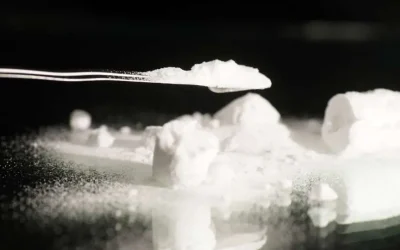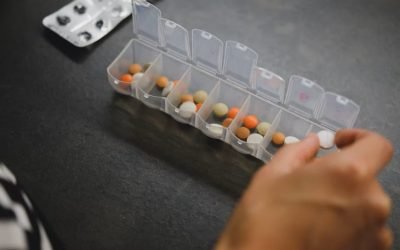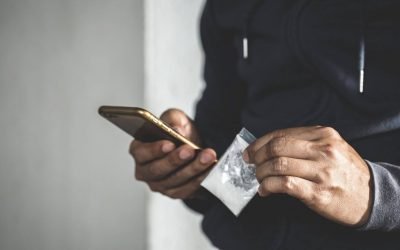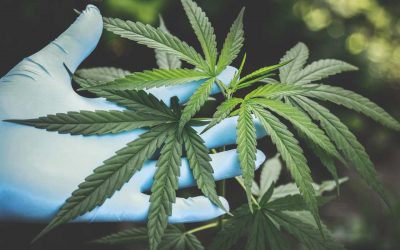Last updated: October, 2025
Many people wonder when a simple habit crosses the line and becomes an addiction. The answer is not always obvious. What begins as occasional use of a substance (or even a behavior like gambling or scrolling online) can slowly evolve into something that feels impossible to control.
Understanding how addiction develops is the first step toward prevention and recovery. Addiction is not a moral weakness but a complex medical condition that affects both the body and the brain.
What Is Addiction?
Addiction is a chronic condition in which a person feels compelled to engage in a behavior or consume a substance despite knowing it causes harm. This compulsion is driven by changes in the brain’s reward system, which links the substance or activity with feelings of relief, pleasure, or comfort.
While addiction is often associated with drugs and alcohol, it can also involve behaviors such as gambling, gaming, sex, or excessive internet use. Over time, the brain starts to rely on these stimuli to regulate mood, motivation, and stress.
When Does Habit Turn Into Addiction?
A habit becomes an addiction when it stops being a choice. In the beginning, people often use substances or behaviors to relax, socialize, or escape stress. But as tolerance develops, the same activity produces less pleasure, and the person feels compelled to repeat it just to feel “normal.”
You may be facing an addiction if you:
- Feel unable to go without the substance or behavior, physically or emotionally
- Need increasing amounts to achieve the same effect
- Experience anxiety, restlessness, or panic when trying to stop
- Spend a large part of the day thinking about using or planning the next opportunity
- Continue despite problems at work, in relationships, or with health
At this point, the habit is no longer voluntary, it has become a dependency.
How Fast Can You Get Addicted?
Addiction does not happen overnight. It often develops gradually through several stages:
- Experimentation: trying a substance or activity out of curiosity or social pressure.
- Recreational use: continuing for fun or relaxation.
- Regular use: beginning to rely on it to manage emotions or stress.
- Problematic use: noticing negative consequences but continuing anyway.
- Dependence: feeling unable to stop, even when it causes harm.
The speed of addiction depends on the substance and the person. Drugs such as heroin, nicotine, and GHB can cause addiction quickly, while alcohol, cannabis, or ecstasy tend to develop dependence more slowly. Personality traits, mental health, and environment also play an important role.
Is Addiction Genetic or Learned?
Genetics can make some people more vulnerable to addiction. However, genes alone do not determine destiny. Environmental factors such as family dynamics, stress levels, trauma, and access to substances also influence risk.
In most cases, addiction arises from a combination of biological, psychological, and social factors. A genetic predisposition might increase sensitivity, but emotional pain, stress, or lack of support often trigger the behavior that leads to dependency.
How Does Someone Become Addicted to a Substance?
The process begins with positive reinforcement. The first experiences of pleasure, energy, or calm create a strong memory in the brain. This “reward” becomes something the person unconsciously seeks again.
Over time, tolerance develops, meaning higher doses or more frequent use are needed for the same effect. The brain’s chemistry adjusts, producing fewer natural feel-good chemicals like dopamine. When the substance is not available, withdrawal symptoms appear (physical discomfort, mood swings, and anxiety) driving the cycle to continue.
Addiction can develop even without a clear cause. Sometimes it stems from loneliness or trauma, but other times it simply evolves as habits form around relief and escape.
Once Addicted, Always Addicted?
Recovery from addiction is absolutely possible. However, it requires determination, self-awareness, and professional guidance. The longer a person lives with addiction, the harder it becomes to break the pattern, but thousands do it successfully every year.
After recovery, the brain remains sensitive to triggers, meaning a single relapse can reignite old habits quickly. This is why aftercare and relapse prevention are key parts of long-term success.
Addiction recovery often involves reshaping your life: finding new routines, meaning, and purpose. It’s not just about stopping use, but about creating a new way of living.
Taking the Next Step
Recognising when a habit has turned into an addiction takes honesty and courage. If you feel trapped in a cycle of craving, guilt, and control loss, it’s time to reach out for support.
At Hacienda Paradiso, we help individuals rediscover balance through evidence-based therapy, medical care, and holistic approaches in a natural, restorative environment. Whether your challenge involves alcohol, drugs, or behavioral dependency, recovery begins with one simple step: asking for help.
You do not have to face addiction alone. Healing is possible, and your journey can start today.
If you feel unable to stop, experience cravings, or continue despite harm, your habit may have turned into an addiction.
No. Behaviors such as gambling, gaming, or internet use can also become addictive when they take control over your daily life.
Genetic predisposition plays a role, but environment, stress, and trauma are often more influential.
Professional therapy, medical supervision, and holistic care can help address both the physical and emotional roots of addiction.
If you find yourself hiding your behavior, feeling anxious when you cannot engage in it, or noticing harm to your health or relationships, it’s time to seek support.









